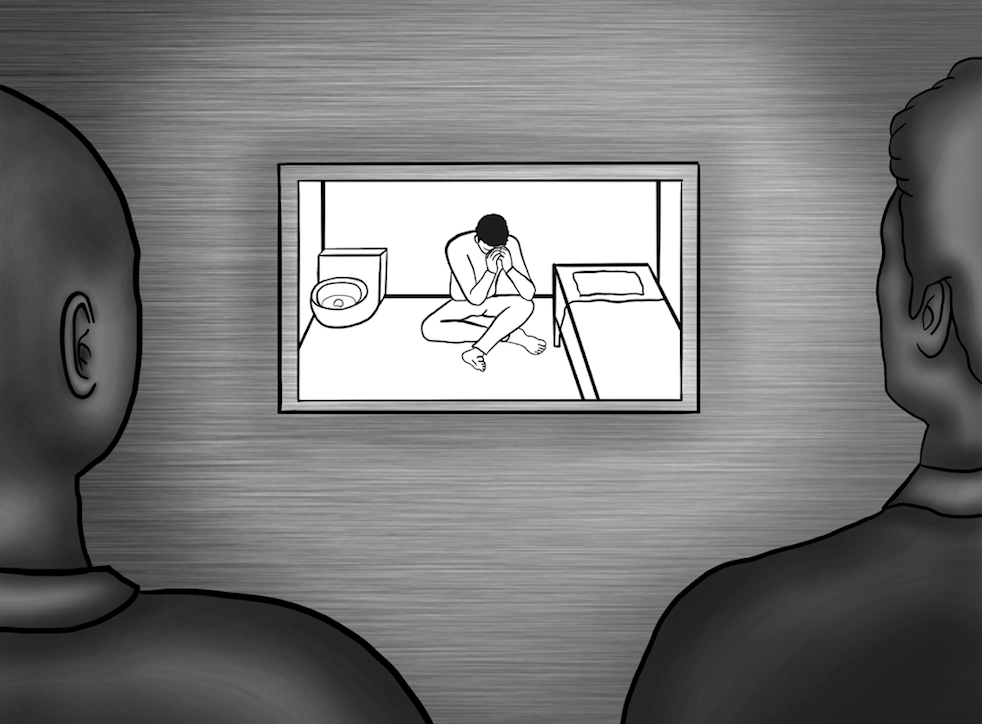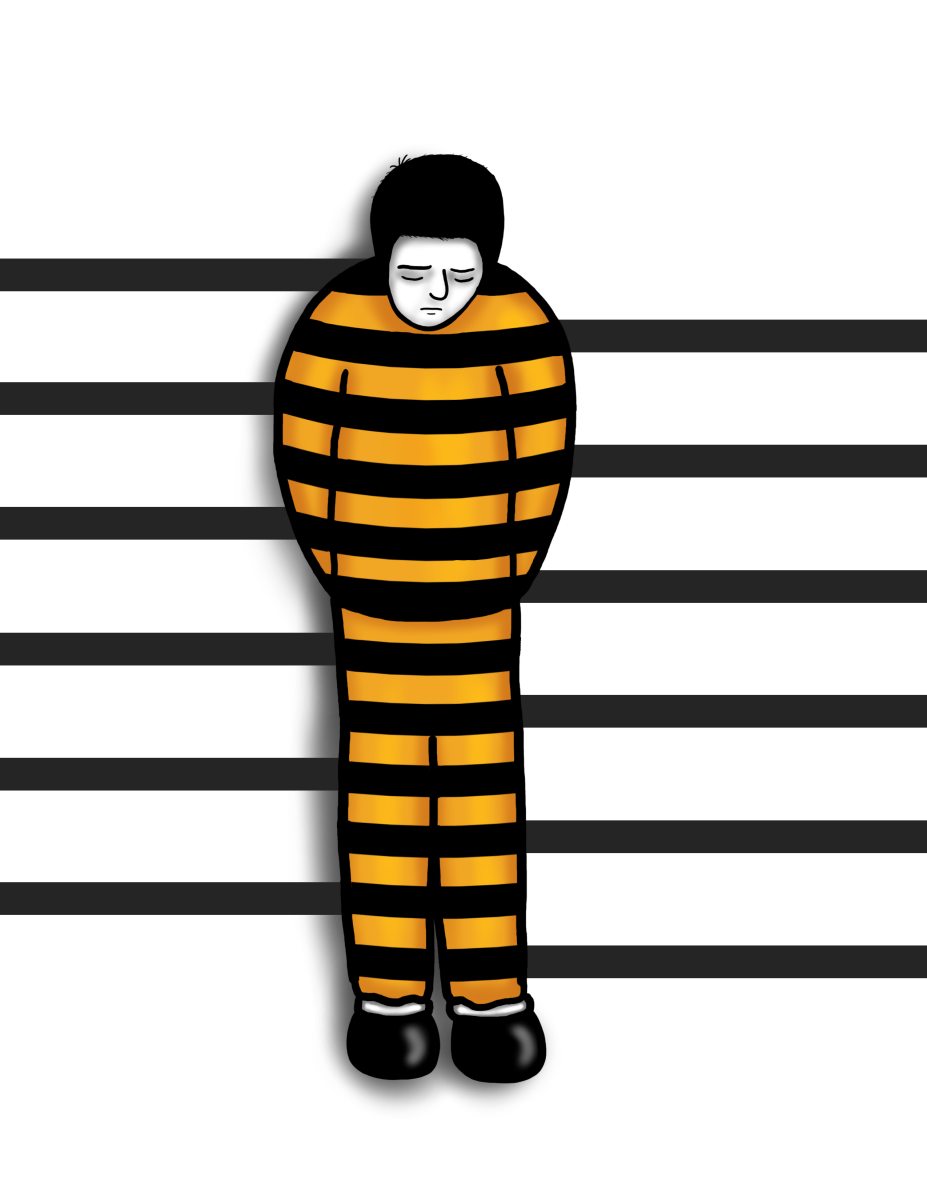(Editor’s Note: This story has been updated to reflect most recent data on exonerations).
At 40 years old, Ruben Pinuelas is having the best five years of his life. He graduated from high school and his community college within 6 days of each other. Since beginning college in 2016, he was a 4.0 psychology student at Pierce Community College in Los Angeles, California, where he won almost every academic award possible. He was a legal intern at the Loyola Project for the Innocent and a judicial intern at the Van Nuys Superior Court. In the fall, Pinuelas is transferring with a full-ride scholarship to Pomona College where his ultimate goal is to become a criminal defense lawyer.
He has accomplished all of this after spending almost 12 years in solitary confinement while in prison for a crime he did not commit.
I met Pinuelas at Pierce Community College. He greeted me with a smile. He was wearing a blue buttoned up shirt; his hair was dark and he was well groomed.
We made our way to the college library, where he said he spends hours studying. He greeted all the faculty with a handshake, and all the staff members knew him. We entered a small sterile room with a big window overlooking the campus.
We sat down. Pinuelas took a deep breath.
“I’ve always been known as just this story. The wrongful conviction took a chapter of my life, but it does not define me,” he said. “That’s just part of my story. But I’ve been in such a whirlwind and doing so much since I got out that I really haven’t taken the time to appreciate who I am now, because I’m not the same person.”
Pinuelas is one of many exonerees of our criminal justice system. According to the National Registry of Exonerations, from 1989 to 2018 there have been 2,372 exonerations in the United States. In total, innocent people have spent 20,000 years in prison for crimes they did not commit. In 2018 alone, there were 151 exonerations, 45% being wrongful convictions for homicides.
According to the most recent data recorded in he National Registry of Exonerations from April to October of 2019, there have been more than 2,500 exonerations. The current total of lost years due to wrongful convictions is more than 22,000, according to the Registry.
Before
Pinuelas was two years old when his parents divorced. He spent time between two different cities, his mother living in Los Angeles and his father living in El Centro. When he was in fourth grade, Pinuelas’s parents decided he needed more stability, so he moved in with his grandparents in El Centro, at the border of California and Mexico.
When he was still young, he was in magnet programs such as Upward Bound, a federal program that helps students from low-income families prepare for pre-college education. But despite his academic success, Pinuelas ran away from home when he was 13 and started getting involved with drugs and gangs.
“I don’t know what I was looking for. It was a like a need to belong. I don’t know what it was,” he said.
Years passed by, and at 18, he said he was done with being a gang member and ready to leave his criminal lifestyle behind him. But in a border-town environment of Imperial Valley surrounded by drugs and gangs in El Centro, he felt the only way he could escape that lifestyle was by leaving town.
He decided to move back to Los Angeles to be with his mother, but she told him that if he wanted to live with her, he had to first turn himself in to the police. He spent a year in county jail in El Centro for his runaway warrant.
At 19, he got out and moved to Los Angeles, ready to turn his life around. He lived with his mother and stepfather for three weeks until he earned enough money working at a warehouse to get his own apartment.
Periodically, his mother would drop dinner off for him at his apartment. But one day, a police officer saw his mother dropping off dinner and interpreted the exchange as a drug deal. Police officers later searched Pinuelas’ apartment and found, as Pinuelas puts it, “sticks and stems” of marijuana. He was sentenced from eight months to two years at Delano Modified Community Correctional Facility.
Before his eight months were done, a prison riot broke out at Delano. In order to survive, Pinuelas said he had to fight off other prisoners. The incident led to his sentence being extended to two years, and he was put in solitary confinement for the first time, though it wouldn’t be the last.
After the prison riot, Pinuelas was then transferred to California State Prison, Corcoran, to finish his two year sentence in solitary confinement. Pinuelas did not want to make prison guards or state officials upset, so he said he complied and patiently awaited his freedom.
When he finished the two years in Corcoran, it seemed freedom was near. But two days before his release, on his birthday, he was falsely accused of conspiracy to commit murder against a fellow prisoner. He would not be released. Pinuelas was then transferred to King’s County Jail, 25 miles north from Corcoran.
While most exonerees are falsely accused outside of the prison system, this was not the case for Pinuelas. He was already in the prison system when he was wrongfully convicted. He was looking at a possible sentence of 60 years to life for a crime he did not commit.
Unaware of the accusations and that he would be transferred to another facility, Pinuelas’ mother left to pick him up from Corcoran Prison for his release. Pinuelas said he tried warning her through a letter that he would be transferred, but it did not reach her in time. When she arrived at Corcoran, prison guards told her that her son was no longer there. Pinuelas said that she had a mental breakdown and checked herself into a psychiatric hospital.
At 28, Pinuelas was now going to trial for a crime he did not commit. His family raised $250,000 to bail him out for the trial. He spent two years on parole, which he described as “living hell.” He said he was constantly harassed by state officials and they tried to offer him a four year plea bargain, but he refused to accept punishment for a crime he did not commit.
The state argued that a toilet plunger Pinuelas had used in his cell was a “deadly weapon” and charged him with another 25 years to life or another $250,000 bail, besides the amount the family had already raised.
In many cases of wrongful conviction, the state will negotiate plea bargains so people will admit to crimes, even if they are not guilty, said Laurie Levenson, a professor and founder of the Loyola Project for the Innocent at the Loyola Law School.
The Loyola Project for the Innocent is a chapter of the Innocence Project Network, a nationwide organization that works to exonerate those who are wrongfully convicted. Law students work in teams to exonerate innocent individuals. In eight years of being active, the Loyola Project for the Innocent has exonerated nine people. The Innocence Project receives hundreds of letters a day from prisoners and family members, hoping that they will be able to overturn wrongful convictions.
“There are false confessions,” Professor Levenson says. “We’ve had egregious cases where the police and prosecutors and their experts have backed up the evidence. I never thought I would see something as blatant as that.”
The jury deemed Pinuelas guilty based solely on expert opinion, according to Judge Cornell from the Court of Appeals of California.
“This is a case in which a jury accepted opinion as fact. While in many respects expert testimony was necessary, much of the expert testimony was based on nothing more than speculation and conjecture,” reads the Court of Appeals’ People v. Pinuelas.
The District Attorney’s Office in Los Angeles declined to comment on the case.
The prosecutors worked with the expert witnesses to try and frame evidence to fit the trial. The key witness was Ryan Couch, the correctional officer at Corcoran State Prison. He argued that Pinuelas was one of the leaders of the prison yard and that the conversations Pinuelas had with his mother were code for murder. They then charged Pinuelas’s mother with 25 years to life as an accessory to commit murder. However, Couch had no concrete proof of that, according to People v. Pinuelas.
During his time awaiting trial, Pinuelas said he was volunteering with Habitat for Humanity building homes and going to night school at Pierce College. He was trying to leave this case behind him in hopes of being able to move on from his criminal history.
He was balancing all of these activities while traveling to King’s County periodically for a murder trial.
Eventually his parole was revoked. According to People v. Pinuelas, Pinuelas “had in his possession two notebooks that contained evidence of drug transactions,” but he said the allegations were untrue. His family did not have the money to bail him out again. He was in jail while he awaited the jury’s decision. He thought he would be determined innocent.
But he was found guilty based on expert witness testimony.
Pinuelas was then sent to Pelican Bay State Prison, the only supermax prison in California, where he spent the rest of his 12 years in solitary confinement.
During
Pinuelas was in an 8×10 cell, which he said was meant to dehumanize and desensitize individuals. Everything in the room is the same color of white and the only source of light is artificial. Pinuelas said that solitary confinement is meant to make people go insane. The environment got to his head at times, making him feel depressed.
When he was first put into his cell, the correctional officers asked him if he wanted to kill himself. Then, no one checked on him for three weeks.
During this time in solitary, Pinuelas said he reached out to different Innocence Projects and lawyers in hopes of achieving justice. He told them he was innocent and his appeal was still pending. Attorneys told him to sit tight. There was still hope.
Though he reached out to different people that could help him, Pinuelas decided to become his own attorney. He and his mother saved up money to buy law books. The answer to his freedom was somewhere in those pages.
He kept the attention of the appeal alive by filing five Habeas corpuses, which are petitions that he filed in order to force the state of California to address the mishandling of justice that led to his incarceration, from the lack of concrete evidence, such as the toilet plunger, to the wrongful allegations that led to his parole violation.
While fighting all Habeas corpuses, his conviction was overturned on grounds of insufficient evidence.
After almost 15 years of incarceration, he said, justice was finally served.
“I still have the [appeal] letter on the wall,” Pinuelas said with a grin.
After
After four months of awaiting his release, Pinuelas was picked up by his mother. He had no clothes except a black paper jumpsuit, but he was free.
Pinuelas went into prison at the age of 20 and got out when he was 35 years old.
The first year and a half after being released was not easy, he said. Pinuelas still felt alone. He could not find anyone to help him and he had no resources to transition back into everyday life. He said therapists declined to work with him because they did not have the experience to help a person under his circumstances.
But during this period of loneliness, Pinuelas began a relationship. He told his girlfriend that the only experience he could relate to was that of a Holocaust survivor because they faced punishment even though they were innocent. She told Pinuelas that if he felt that way, he should seek out a survivor.
He went to the Museum of Tolerance in Los Angeles hoping to hear a Holocaust survivor speak. There he met a little old lady who was talking about her experience.
“When does the pain stop?” he asked.
“It never does,” she said.
Pinuelas said he started sobbing uncontrollably.
“And at that very moment,” he said, “I realized I’m going to be like this for the rest of my life. There’s no healing, There’s no justice, I’m not going to ever find peace.”
The Holocaust survivor then added, “But it’s not what’s done to us, it’s what you choose to do [about it].”
This is part of what inspired Pinuelas to pursue a career in law. The first two and a half years after being released he worked in construction. He said he made good money, but he knew that he was not meant to do construction for the rest of his life.
Pinuelas then returned to school.
He excelled at Pierce College, which led him to the opportunity to intern at the Loyola Project for the Innocent. Suddenly, Pinuelas switched roles. He was no longer the person writing the letters and begging for help. He was now an intern, answering letters from inmates who had been in his position.
Now, he is about to continue his undergraduate education at Pomona College, where he will obtain his degree in psychology. He plans to pursue law school and become an attorney.
“Education is freedom,” Pinuelas said. “Education is what helped me survive solitary confinement. Education is what allowed me to get myself out of the system, out of prison and education is now opening up this whole world. Eventually, I’m literally going to be able to go anywhere in the world because of education.”
Despite the thousands of exonerations that have happened over the years, Professor Levinson says that wrongful convictions can be avoided.
“We have to stop treating people as disposable,” Levenson said. “Many of our clients are people of color from lower income households, maybe even have lived on the streets or [have had] powerful gang involvement. And we just treat these people as the lesser. And that’s a huge problem.”
Pinuelas was a victim of the criminal justice system for 12 years while in solitary confinement, but he said he still has faith that the system works.
“When I meet people like Laurie, people at the Innocence Project, future attorneys, I have faith in us and I have faith in myself – to make change in the legal system,” said Pinuelas. “It’s a difference of sitting here complaining and bickering about stuff. It’s another thing when we can actually go out and do something about it and we can all make a difference.”
Illustration by Garrett Dare









![[Photo Courtesy of the Lara Family]
Ruben embraces his beloved childhood goat, Katrina.](https://ethos.dailyemerald.com/wp-content/uploads/2025/05/katrina-1-1060x1200.jpg)


